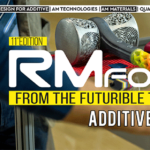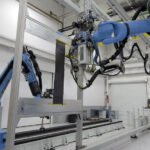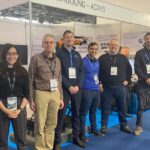NASA has established a public-private partnership with five organizations to advance knowledge about composite materials that could improve the performance of future aircraft.
Composites are innovative new materials for building aircraft that can enhance strength while remaining lightweight. The agency selected the National Institute of Aerospace (NIA) in Hampton, Virginia, to manage administration of the Advanced Composites Consortium, which is working to improve composite materials research and certification.
Included in the consortium are NASA’s Advanced Composites Project, managed from the agency’s Langley Research Center in Hampton; the Federal Aviation Administration (FAA); General Electric Aviation, Cincinnati; Lockheed Martin Aeronautics Company, Palmdale, California; Boeing Research & Technology, St. Louis; a team from United Technologies Corporation led by subsidiary Pratt & Whitney in Hartford, Connecticut; and the NIA.
“NASA is committed to transforming aviation through cutting edge research and development,” said Jaiwon Shin, associate administrator for NASA’s Aeronautics Research Mission Directorate in Washington. “This partnership will help bring better composite materials into use more quickly, and help maintain American leadership in aviation manufacturing.”
The NIA will handle communications within the consortium and help manage the programmatic and financial aspects of members’ research projects. The NIA also will serve as a “tier two” member with a representative on the consortium’s technical oversight committee.
NASA formed the consortium in support of the Advanced Composites Project, which is part of the Advanced Air Vehicles Program in the agency’s Aeronautics Research Mission Directorate. The project’s goal is to reduce product development and certification timelines by 30 percent for composites infused into aeronautics applications.
A panel of NASA, FAA and Air Force Research Laboratory experts reviewed 20 submissions and chose the members based on their technical expertise, willingness and ability to share in costs, certification experience with government agencies, and their focused technology areas and partnership histories.
Representatives from each organization in the consortium participated in technology goal planning discussions, assembled cooperative research teams, and developed draft plans for projects in three areas: prediction of life and strength of composite structures, rapid inspection of composites and manufacturing process and simulation.












